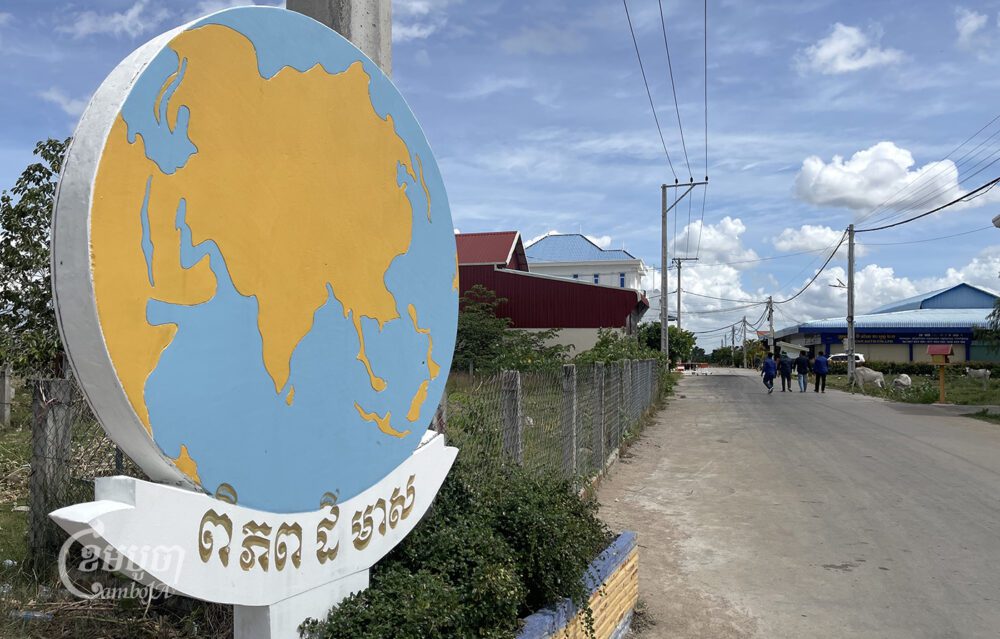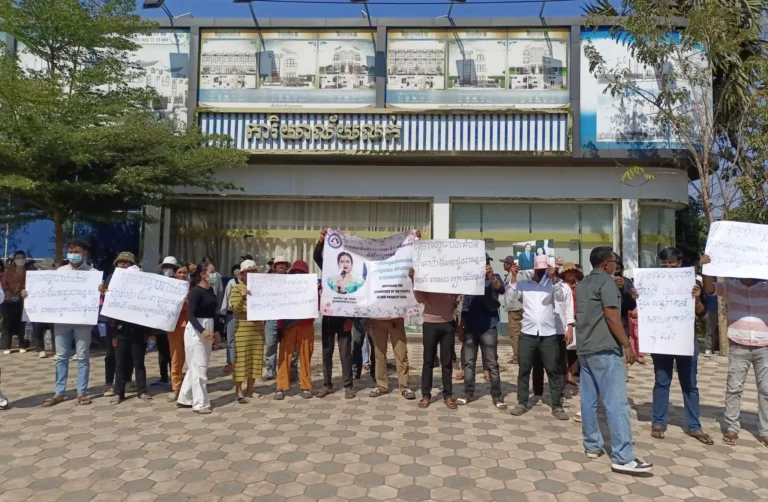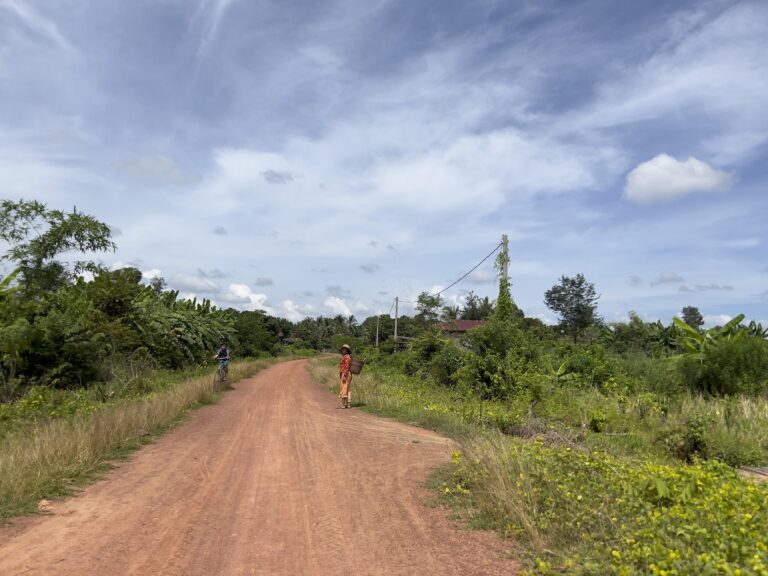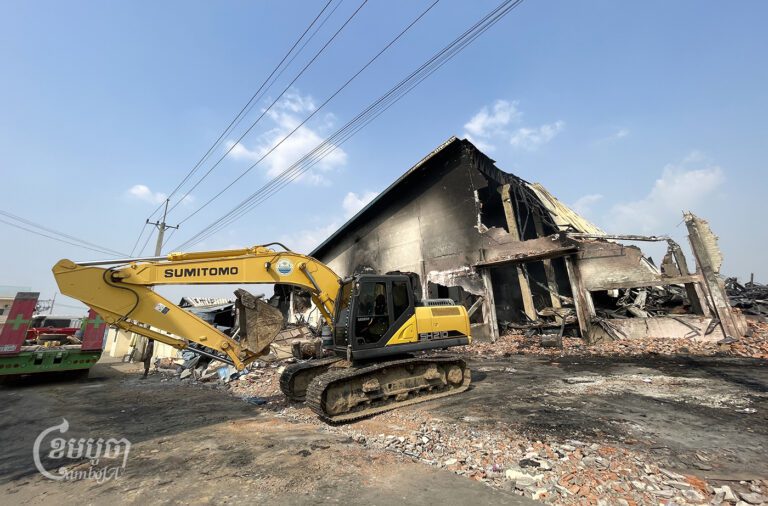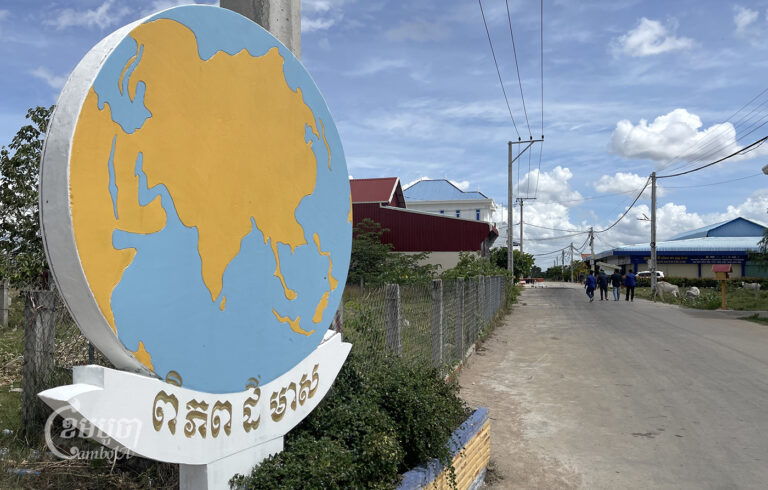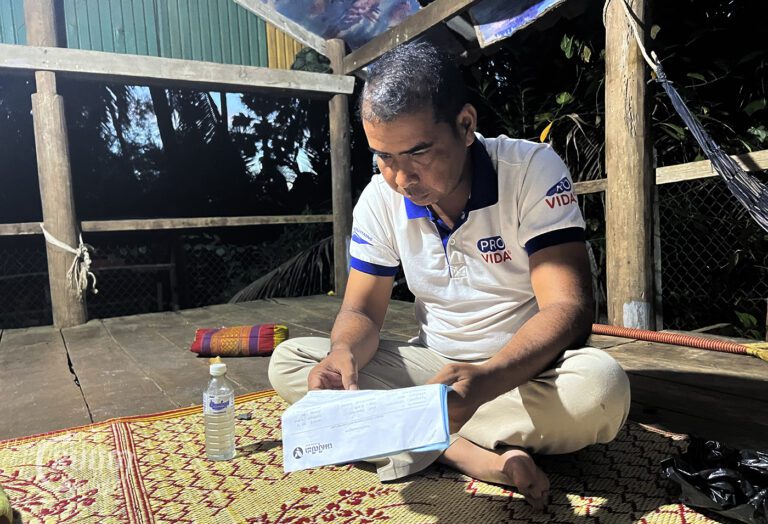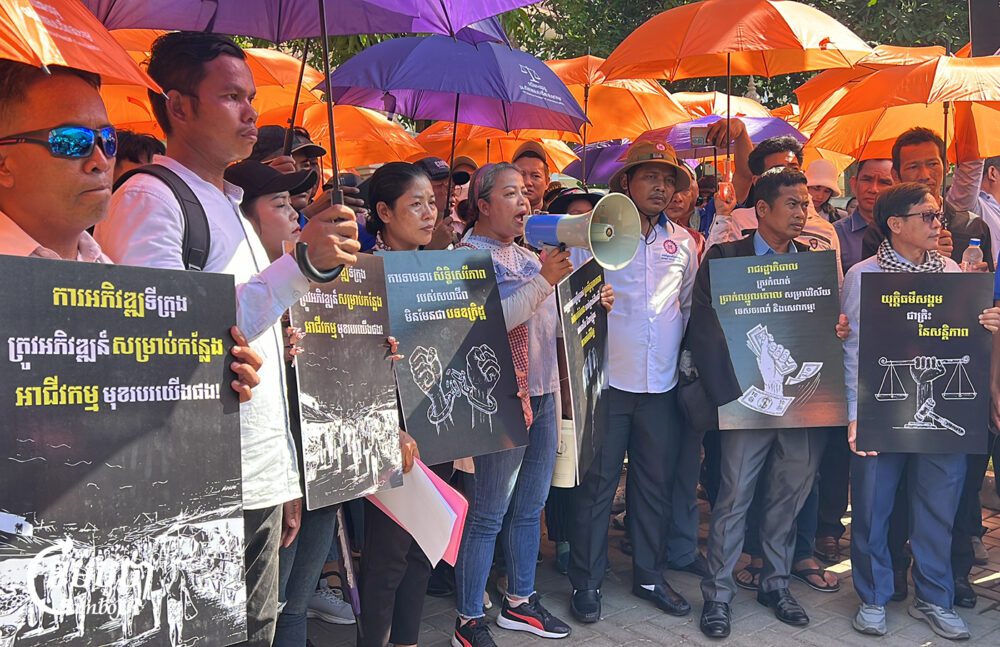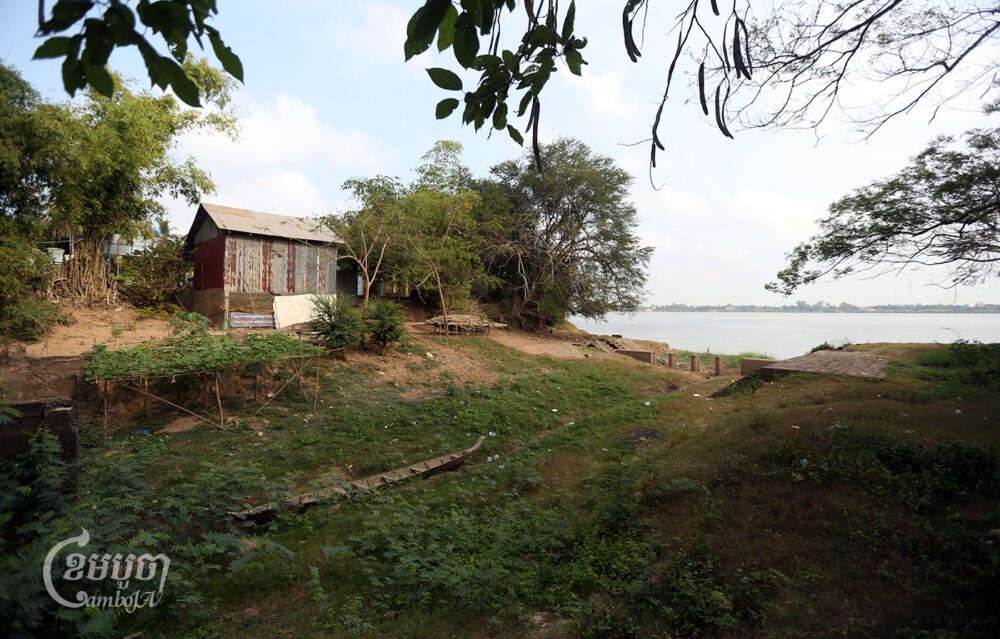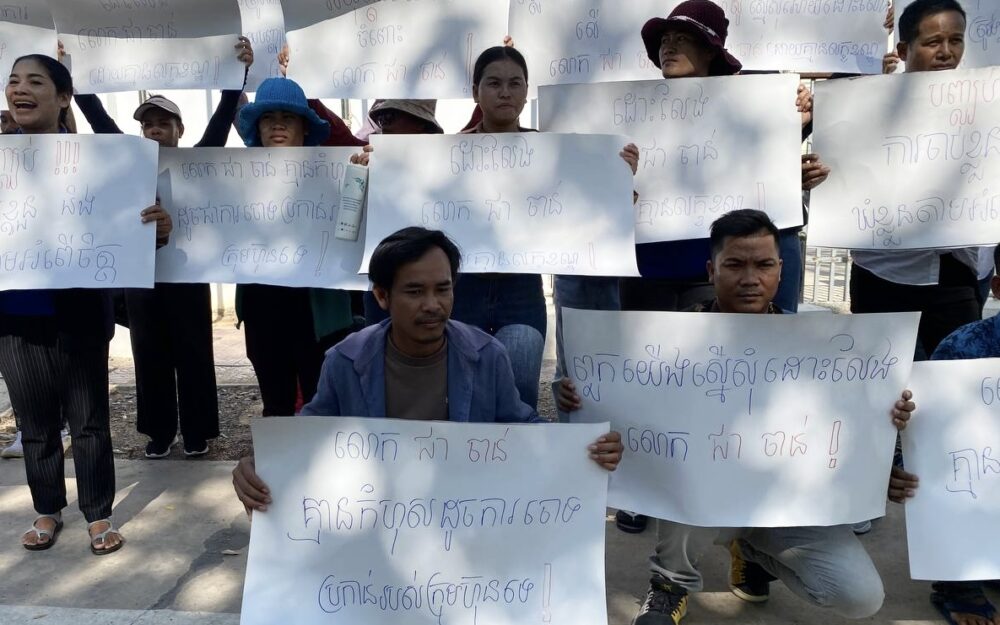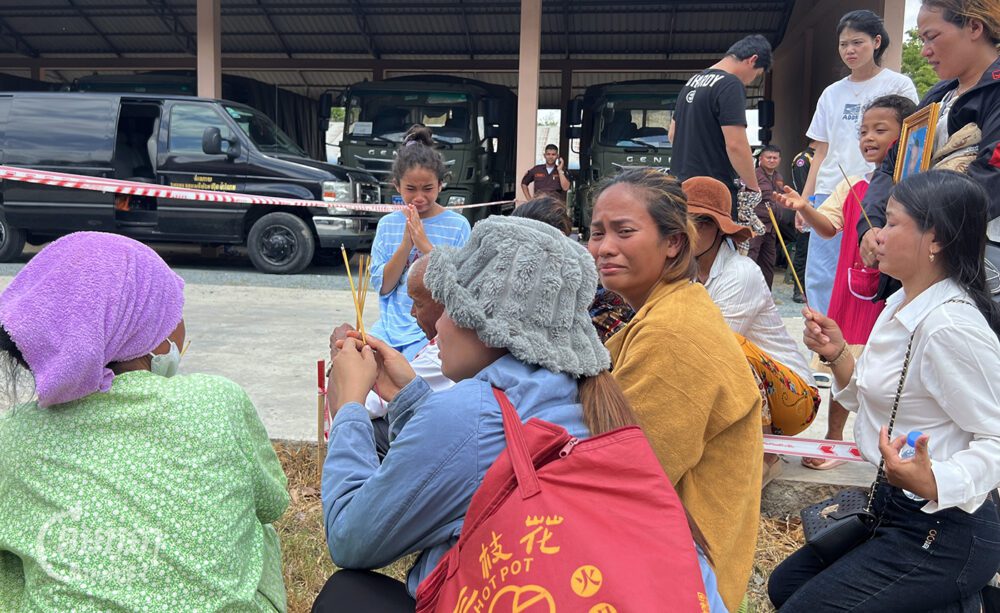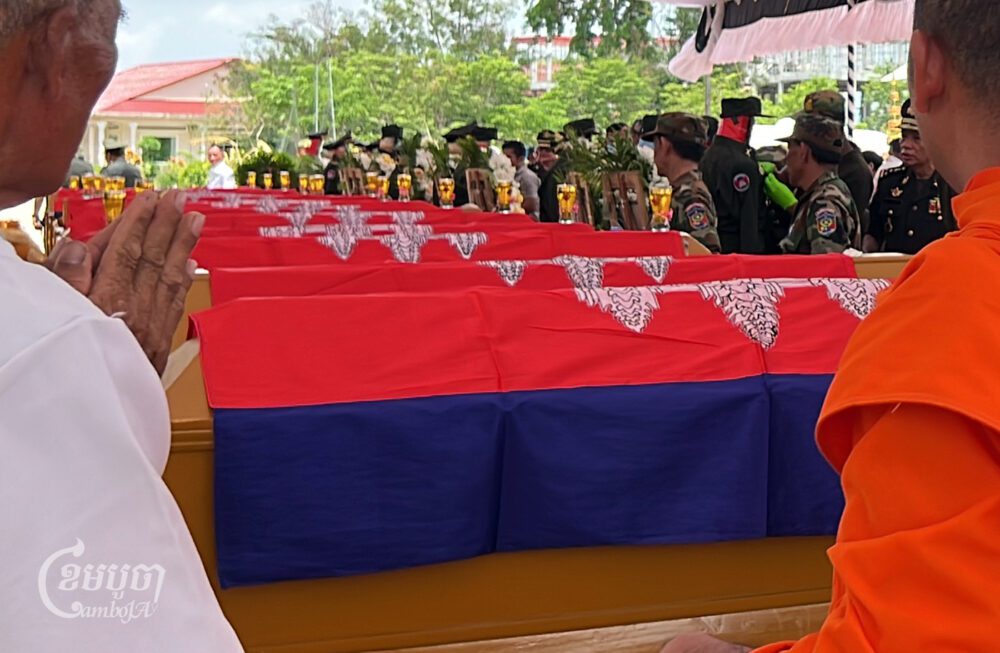Phnom Penh police arrested tycoon Hy Kimhong on Monday for allegedly defrauding more than 690 Kampot families out of millions of dollars in a real estate scheme.
Phnom Penh municipal police spokesperson San Sokseyha said that the tycoon’s 13 bodyguards were also arrested because they had obstructed the court’s arrest order and used violence against law enforcement officials attempting to enforce it.
The tycoon and his bodyguards were all sent to the Phnom Penh municipal court, Soksehya said. Phnom Penh Municipal Court spokesperson Plang Sophal said that he did not receive information about the case yet.
Kampot Provincial Police Chief Mao Chanmathurith told CamboJA that, as of August 8, 698 families had joined a complaint against Piphup Deimeas, Kimhong’s real estate firm, for failing to make monthly payments to investors.
Chanmathurith said that most of the people who had invested in the company were farmers living in Kampot province who borrowed money from the bank to invest in Piphup Deimeas. Collectively, they had invested $10.9 million, he noted.
“All…have invested through the purchase of land and earn monthly interest,” Chanmuthurith said. “Ninety-five percent of the people went to borrow money from the bank to invest with the land company.
One victim of the alleged scheme, Ear Ly, 37, told CamboJA that he had borrowed $20,000 from Woori bank to buy land in Kampong Speu province through Piphup Deimas and received monthly returns of $800, enough to cover the $430 bank repayments.
“I got $800 per month from that investment and now the contract is over but I didn’t get my money back ($20,000),” said Ly, noting he had not received the monthly returns since June.
He said the company’s staff had persuaded the banana and durian farmer to invest who struggled to earn enough to support his family. He now regretted the investment as he still must repay the bank loan though he said he could no longer sustain daily costs of living for his family of five.
“I have no hope that the company could pay money back to me, maybe I will sell my land to pay the bank loan because I live in the countryside and do not have thousands of money to pay the loan,” Ly said.
Kampot’s provincial police chief said that reimbursements of the company’s victims “depends on the court, and what the company can sell to repay the people.”
Commerce Ministry records list Kimhong as the sole director of the Piphup Deimeas Group and as a director of AMZ Microfinance Institution and five other businesses.
A phone number listed for Kimhong in Commerce Ministry records was answered by a man in Poipet who said he had no connection to Kimhong or his companies but had been hassled for the past year by reporters.
Kimhong’s former business associate Theng Leang, previously a director of another of Kimhong’s companies, Phipup Deimeas Investment, said he had resigned as the director in 2018 and was no longer associated with the company. Other former directors of the real estate firm could not be reached.
“I left this company in 2018 because the way we work together didn’t go well and I have no comment about the fraud,” Leang said.
Kampot’s police chief Chanmathurith said that police are still searching for more associates of the Piphup Deimeas company.
He added that there had been other tycoons facing legal issues for defrauding Kampot residents, notably tycoon Chea Saran’s company Chea Saran Group.
Chea Saran was arrested in April after around 2,000 families filed complaints against him and his associates. He was charged with aggravated fraud and sent to Kampot prison on April 27.
“We will continue the procedure and the business formula is not different from Deimeas and Chea Saran,” Kampot’s police chief said.
Cambodia Microfinance Association (CMA) spokesperson Kaing Tongngy said that people have frequently been scammed by fraudulent companies as they seek a return on high interest rates.
“Sadly, this problem continues to occur, but sometimes there seems to be no restraint,” he said. “Even local authorities do not know whether this form of fraud is illegal or not.”
Tongngy pointed out that a company with more than 30 shareholders — as was the case with Piphup Deimeas — must have a license from the Ministry of Economy and Finance to raise capital from the public.
Commerce Ministry spokesperson Seang Thai and Ministry of Economy and Finance spokesperson Meas Soksensan could not be reached for comment.
“Citizens should file a complaint to the authorities and relevant officials to freeze the company’s assets and continue legal proceedings to seek redress and compensation,” CMA’s Tongngy told CamboJA. “I urge people to understand and study more on investment clearly before and believe in high interest rates to avoid all forms of fraud.”
Tongngy did not respond to additional questions, asked later over Telegram, about whether victims of the land fraud scheme who had borrowed from CMA member institutions would receive any form of debt relief or restructuring.
The Association of Banks in Cambodia chairman Raymond Sia did not respond to request for comment.
Human rights NGO Licadho’s Operations Director Am Sam Ath said that authorities should seek some solution for the heavily indebted families.
“It is important to point out that the authorities and relevant officials should pay more attention to this issue, and I think before giving any license to any company it should be checked,” he said. “Study [the company] in depth so that they do not rely on the license obtained from the Ministry to use to do bad things and cause harm to citizens.”


